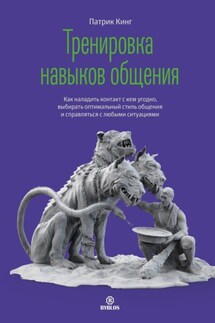The Murder of Roger Ackroyd / Убийство Роджера Экройда - страница 29
Poirot nodded.
‘Quite so. That was your only motive in going there, eh?’
‘That was my only motive,’ I said stiffly.
‘It was not to – shall we say – reassure yourself about ce jeune homme?’
‘Reassure myself?’
‘I think, M. le docteur, that you know very well what I mean, though you pretend not to do so. I suggest that it would have been a relief to you if you had found that captain Paton had been at home all the evening.’
‘Not at all,’ I said sharply.
The little detective shook his head at me gravely.
‘You have not the trust in me of Miss Flora,’ he said. ‘But no matter. What we have to look at is this – captain Paton is missing, under circumstances which call for an explanation. I will not hide from you that the matter looks grave. Still, it may admit of a perfectly simple explanation.’
‘That’s just what I keep saying,’ cried Flora eagery.
Poirot touched no more upon that theme.
Instead he suggested an immediate visit to the local police. He thought it better for Flora to return home, and for me to be the one to accompany him there and introduce him to the officer in charge of the case.
We carried out this plan forthwith. We found inspector Davis outside the police station looking very glum indeed. With him was colonel Melrose, the chief constable, and another man whom, from Flora’s description of ‘weaselly’, I had no difficulty in recognizing as Inspector raglan from Cranchester.
I know Melrose fairly well, and I introduced Poirot to him and explained the situation. The chief constable was clearly vexed, and Inspector raglan looked as black as thunder. Davis, however, seemed slightly exhilarated by the sight of his superior officer’s annoyance.
‘The case is going to be plain as a pikestaff,’ said raglan. ‘Not the least need for amateurs to come butting in. you’d think any fool would have seen the way things were last night, and then we shouldn’t have lost twelve hours.’
He directed a vengeful glance at poor Davis, who received it with perfect stolidity.
‘Mr Ackroyd’s family must, of course, do what they see fit,’ said colonel Melrose. ‘But we cannot have the official investigation hampered in any way. I know M. Poirot’s great reputation, of course,’ he added courteously.
‘The police can’t advertise themselves, worse luck,’ said Raglan.
It was Poirot who saved the situation.
‘It is true that I have retired from the world,’ he said. ‘I never intended to take up a case again. Above all things, I have a horror of publicity. I must beg, that in the case of my being able to contribute something to the solution of the mystery, my name may not be mentioned.’
Inspector Raglan’s face lightened a little.
‘I’ve heard of some very remarkable successes of yours,’ observed the colonel, thawing.
‘I have had much experience,’ said Poirot quietly. ‘But most of my successes have been obtained by the aid of the police. I admire enormously your english police. If Inspector raglan permits me to assist him, I shall be both honoured and flattered.’
The inspector’s countenance became still more gracious. Colonel Melrose drew me aside.
‘From all I hear, this little fellow’s done some really remarkable things,’ he murmured. ‘We’re naturally anxious not to have to call in Scotland yard. raglan seems very sure of himself, but I’m not quite certain that I agree with him. you see, I – er – know the parties concerned better than he does. This fellow doesn’t seem out after kudos, does he? Would work in with us unobtrusively, eh?’











